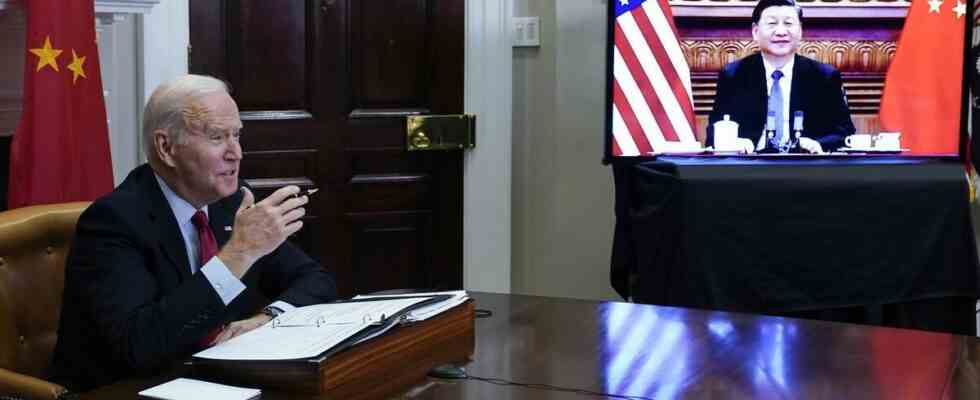Beijing no longer threatens only the United States and Taiwan, but the whole planet. Relations between China and the United States cooled last week, after the much-observed visit of Nancy Pelosi, the speaker of the American House of Representatives, to Taiwan on Wednesday.
After threatening reprisals, Beijing announced on Friday the end of its cooperation with Washington, particularly in terms of climate. Beijing will “suspend the Sino-American negotiations on climate change”, announced the Chinese Ministry of Foreign Affairs. “A disaster for the climate”, judge François Gemenne, member of the IPCC (Intergovernmental Panel on Climate Change) and teacher at Science Po, contacted by 20 minutes.
Why is this a “catastrophe” for the climate?
It is a disaster because we know that cooperation between countries, and in this case between the two largest emitters of greenhouse gases, is crucial to achieve the objectives set by the Paris Agreement.
This cooperation between China and the United States has existed for almost ten years, since John Kerry [secrétaire d’État des États-Unis sous Barack Obama] managed to obtain a joint declaration with Beijing which allowed the Paris Agreement to exist a year later.
So far, the cooperation has managed to survive the administration of Donald Trump and several trade disputes. This question should not be impacted by other subjects of confrontation between the two giants, it was sanctuarized. Whereas today, it will depend on the other countries. What is important to understand here is that this cooperation leads to what is decided in other countries, it allows everyone to be involved. And there, it is the signal sent to others that counts.
If these two powers no longer collaborate, that risks leading other countries to disengage. Among these states, one can imagine that China’s allies, such as Russia, but also the Asian and African countries that depend on Beijing for food and investment, could be among the countries that disengage.
What are the possible consequences?
As the Paris Agreement is based on voluntarism, and does not legally bind the States, it is based on fragile foundations, and there, the base is even more fragile without the Sino-American engine. The cornerstone is its universal side. Without this cooperation, we fall into the worst-case scenario predicted by the IPCC, that of a 4°C increase in the average temperature of the Earth by the end of the century.
Moreover, in the worst case, we can also fear a confrontation between two blocs: liberal democracies on the one hand and authoritarian regimes and hydrocarbon producers on the other. This could thus shatter the mechanism of the Paris Agreement and we risk having two climate diplomacies. Unfortunately, there will probably be no positive emulation in moving towards the most ambitious decisions on the issue.
What can we expect from COP27?
Everything will depend on Egyptian diplomacy, [pendant ce rendez-vous pour le climat qui réunira les 197 pays signataires de la Convention-cadre des Nations unies sur les changements climatiques à Charm el-Cheikh, en novembre prochain]. The big challenge is going to be to see if the host country can keep everyone around one common statement. If so, whatever its contents, even if it is an empty shell, we will have avoided the worst. But for the moment it is not known whether this is a temporary or lasting dissatisfaction, and what Egypt will be able to make up for at the conference.

